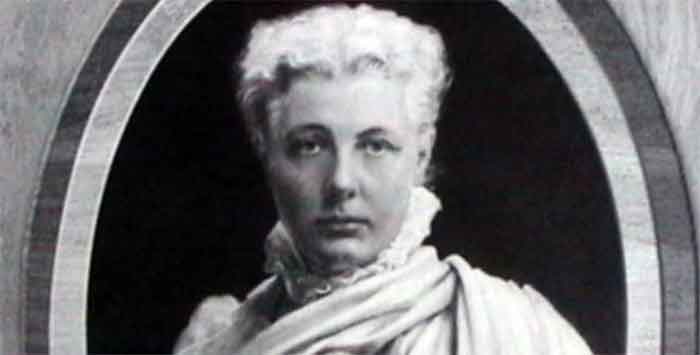Colonial rule is generally a relentless long story of exploitation and injustice, and this is certain true of the nearly two centuries of British rule in India. Despite this reality, however, it is fascinating to know that there were several British citizens who went out of their way to help the struggles of India against colonial rule. Some of them are famous now, many others remain unrecognized. These friends of India need to be remembered and their memory cherished, not only for their contribution to history, but also as symbolism of a new internationalism to promote justice at world level, overcoming narrow interests and prejudices.
C.F. Andrews (1871-1940) was a very remarkable priest and teacher who became one of the best friends of Mahatma Gandhi ( who called him Christ’s Faithful Apostle) . He was initially involved more in educational work, teaching in St. Stephens in Delhi and also serving as Headmaster of the Lawrence School, Sanawar for some time, but was later drawn more to the nationalist movement and is reported to have played an important role in bringing Gandhi back to India from South Africa, after first helping him in his efforts there.
Andrews played a very important role in helping Gandhi when he went to London for the second round table conference, and on another occasion he played an important role in saving his life by rushing around a lot to get the messages from British Cabinet which were important for Gandhiji to end his fast. On the other hand Andrews also helped B.R.Ambedkar and participated in struggles for dalit rights. Andrews enjoyed a very good relationship with Rabindranath Tagore . He participated in several struggles of workers and several constructive activities as well.

Annie Besant (1847-1933), the famous theosophist, socialist, philanthropist, author and activist for rights of women led a life of many achievements. An important part of her work related to her support for Irish as well as Indian self-rule. She participated in the nationalist struggle of India and was elected President of the Indian National Congress in 1917. She also went to prison for her association with freedom movement. She worked more closely with Lokmanya Tilak and together they launched the Indian Home Rule League. This was the peak of her involvement in the freedom movement but she continued to extend her support till her last days. In addition her contributions in founding several important educational institutions were also important.
Freda Bedi ( mother of famous movie actor Kabir Bedi) is also known for her contribution to the freedom movement. While studying at Oxford she fell in love with BPL ( Baba Pyare Lal) Bedi and after marriage the couple came to India and were involved with the freedom movement. Freda also served a jail sentence. After freedom she first led an activist life in Kashmir and later did much to help the Tibetan cause, finally herself converting to Tibetan Budhism and becoming known as Sister Palmo.
Catherine Mary Heilman was known as a very brilliant student in Britain but giving up career opportunities there she came to India to seek some higher purpose and ultimately won great respect in the freedom movement as Sarla Behn. She first made important contributions in educational and khadi work but later became more directly involved in freedom movement in Uttarakhand, and happily served prison sentences. She was also known for her work in helping family members of freedom fighters who had been jailed. She founded the famous Lakshmi Ashram at Kasauni where daughters of freedom fighters and social activists could study and train under her guidance. Leading social activists Like Radha Behn and Vimla emerged from here. She became a motherly figure for a new generation of Gandhian freedom fighters and social activists. In the post-independence days the senior most Gandhians of Uttarakhand Vimla and Sunderlal Bahuguna ( Chipko Movement) regarded themselves as her disciples. She was also involved in the famous Bhoodan movement and in work relating to the surrender of Chambal dacoits.
Apart from these and other famous names, we have several examples of ordinary British citizens standing up for justice to India and Indians at important points of the freedom struggle. In the Aamir Khan starrer Mangal Pandey there is a character, stated to be a real life person, a British army officer who sympathized with the Indian cause and fought on the Indian side bravely, ultimately sacrificing his life. At the time when death sentence was pronounced against Bhagat Singh, Rajguru and Sukhdev following a farcical trial, there were a lot of well-known protests in India. Not so well-known is the fact that there was also an effort in Britain against this highly unjust death sentence.
An appeal titled ‘Stop the Lahore Executions’ was signed by thousands of people in Britain. This appeal addressed to the British government and its senior representatives in India questioned many unjust and arbitrary aspects of the trial and stated, “ If the three death sentences are put into operation , we shall hold you and your government responsible for sanctioning what amounts to the murder of political opponents under the guise of official judicial sentences .”
Clearly such strong expressions of solidarity with and support for the bravest freedom fighters from the people living in the imperialist country need to be remembered with respect as symbols of human bonds based on justice and brotherhood which transgress all narrow boundaries and divides.
Bharat Dogra is a journalist and author who has written biographies of several freedom fighters.
GET COUNTERCURRENTS DAILY NEWSLETTER STRAIGHT TO YOUR INBOX
Related posts:
Related posts:
Views: 0
 RSS Feed
RSS Feed

















 February 24th, 2021
February 24th, 2021  Awake Goy
Awake Goy 



 Posted in
Posted in  Tags:
Tags: 
















